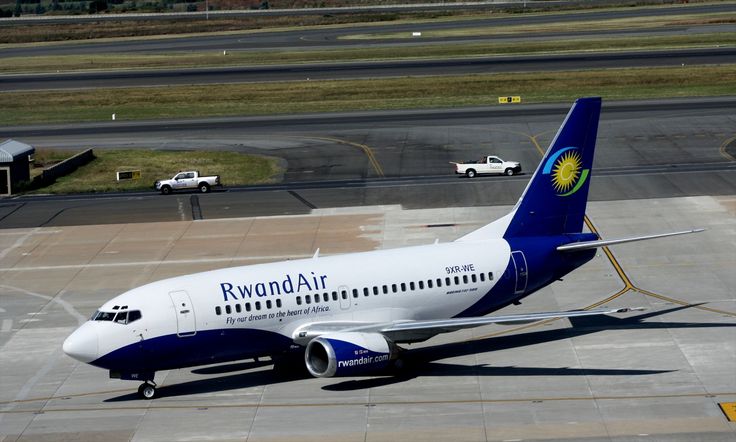Why Visit Rwanda?
Rwanda is one of Africa’s most captivating destinations, known for its breathtaking scenery, rich wildlife, and welcoming culture. Whether you’re visiting for a gorilla trekking adventure, a cultural experience, or a business trip, the first step is understanding how to get a visa. Fortunately, Rwanda has implemented a visa process that is straightforward, fast, and accessible to most international travelers.
Do You Need a Visa to Enter Rwanda?
Yes, most visitors will need a visa to enter Rwanda. However, the good news is that Rwanda offers visa-on-arrival access to citizens of all countries. That means you don’t necessarily need to apply before departure. The visa-on-arrival option allows for a 30-day single-entry stay and is issued directly at Kigali International Airport or at any official land border crossing.
Types of Rwanda Visas Available
Rwanda offers different visa options based on the purpose and nature of your trip:
1. Tourist Visa (Single Entry)
Ideal for short visits, this visa allows you to stay in Rwanda for up to 30 days. It’s available on arrival and via the eVisa system.
2. Multiple Entry Visa
For those planning multiple entries into Rwanda within a short timeframe, a multiple-entry visa is also available.
3. East African Tourist Visa
If you’re planning to visit Rwanda, Uganda, and Kenya during your trip, this is the most cost-effective choice. The East African Tourist Visa allows multiple entries between these three countries over a 90-day period.
4. Business and Conference Visas
Business travelers and conference attendees can apply for a visa on arrival or online. Additional documentation, like an invitation letter, may be required.
Who Can Enter Rwanda Visa-Free?
Rwanda has made agreements with certain countries and regions to allow visa-free entry or free visas on arrival. These include:
- East African Community (EAC) nationals: Citizens of Uganda, Kenya, Tanzania, South Sudan, Burundi, and the DRC can enter Rwanda without a visa and stay up to 6 months.
- African Union, Commonwealth, and La Francophonie countries: Citizens receive a free 30-day visa on arrival.
How to Apply for a Rwanda Visa Online (eVisa)
If you prefer to plan ahead, you can apply for a Rwanda eVisa before your trip. This is especially useful if you’re entering the country for business, have connecting flights to arrange, or simply want to avoid queues at the airport.
You’ll need:
- A valid passport (with at least 6 months validity)
- A recent passport photo
- Basic travel details (such as accommodation and itinerary)
Once submitted, the visa is usually processed within 3–5 working days. You’ll receive an email with your approval letter, which you must print and carry with you.
Rwanda Visa on Arrival Process
Most travelers opt for the convenience of getting their visa on arrival. Here’s what to expect:
- Fill out a short visa form upon arrival
- Present your valid passport and travel documents
- Pay the visa fee (usually in US dollars, though Rwandan francs and cards may be accepted)
- Receive your visa stamp and proceed through immigration
This process is typically quick and efficient, particularly at Kigali International Airport.
How Much Does a Rwanda Visa Cost?
Visa fees are affordable and transparent. Here’s a general overview:
- Single-entry tourist visa: Approx. $50 USD
- Multiple-entry visa: Around $70 USD
- East African Tourist Visa: $100 USD (valid for Rwanda, Uganda, and Kenya)
Note: If you are eligible for free visa entry (based on your country of origin), you won’t need to pay.
What Are the Entry Requirements?
Before traveling, make sure you meet the following criteria:
- Passport Validity: Must be valid for at least six months beyond your intended departure date
- Return/Onward Ticket: May be required by immigration officers
- Yellow Fever Certificate: Mandatory if arriving from a yellow fever endemic country
Although Rwanda is known for its efficient immigration service, it’s wise to have all necessary documents in hand to avoid delays or complications.
When Should You Apply for Your Visa?
If you’re applying for the eVisa, aim to do so at least one to two weeks before your trip. This provides enough time for processing and ensures you’re not rushed in case of delays. If you’re getting your visa on arrival, simply be sure to carry the correct fee, supporting documents, and a printed travel itinerary.
Which Visa Should You Choose?
- Visa on Arrival: Perfect for travelers entering Rwanda only, staying 30 days or less, and who want convenience.
- eVisa: Ideal for those who prefer to be prepared before travel and skip airport paperwork.
- East African Tourist Visa: Best value for multi-country travelers visiting Rwanda, Uganda, and Kenya.
- Business/Conference Visa: Suitable for professionals attending events or meetings in Rwanda.
Final Tips for a Smooth Entry
To ensure a hassle-free arrival in Rwanda, consider these last tips:
- Carry extra copies of your visa approval letter (if you applied online)
- Bring physical proof of your hotel bookings and travel itinerary
- Have the exact visa fee in cash as a backup in case card machines are unavailable
- Carry a yellow fever vaccination certificate even if it may not be strictly requested
A Simple and Welcoming Process
Rwanda’s visa policy is among the most traveler-friendly in Africa. Whether you’re visiting for adventure, wildlife, business, or culture, the visa process is designed to be fast, clear, and accessible. With visa-on-arrival, eVisa, and regional visa options, there’s a solution for every type of traveler. As long as you meet the basic requirements and prepare your documents in advance, entering Rwanda will be smooth and stress-free.
If you’re planning your Rwanda trip soon, now is the perfect time to begin preparing. Rwanda’s beauty and hospitality are well worth the journey—and the visa process makes getting there easier than ever.




